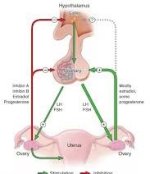minyunhee11
New member
Infertility can be a challenging and emotional journey for many women. Hormonal imbalances often play a significant role in fertility struggles, affecting ovulation, menstrual cycles, and overall reproductive health. Fortunately, medical advancements have led to effective treatments that can help restore hormone balance and improve fertility.
One such treatment involves Human Chorionic Gonadotropin (HCG), a hormone that plays a crucial role in reproductive health. HCG is available under brand names like Pregnyl, Novarel, and Ovidrel and is commonly used to boost fertility in women struggling with ovulation disorders.
This comprehensive guide explores how HCG works, its benefits for female fertility, and how it can be a game-changer for women trying to conceive.
Whether used in natural cycles, IUI, or IVF, HCG plays a pivotal role in modern fertility treatments. If you’re experiencing irregular cycles, anovulation, or recurrent pregnancy loss, consult a fertility specialist to see if HCG could be the key to your fertility boost.
One such treatment involves Human Chorionic Gonadotropin (HCG), a hormone that plays a crucial role in reproductive health. HCG is available under brand names like Pregnyl, Novarel, and Ovidrel and is commonly used to boost fertility in women struggling with ovulation disorders.
This comprehensive guide explores how HCG works, its benefits for female fertility, and how it can be a game-changer for women trying to conceive.
Understanding Female Infertility and Hormonal Imbalance
Infertility affects millions of women worldwide, with hormonal imbalances being a leading cause. Key hormones involved in fertility include:- Follicle-Stimulating Hormone (FSH) – Stimulates egg development
- Luteinizing Hormone (LH) – Triggers ovulation
- Estrogen & Progesterone – Regulate the menstrual cycle and support pregnancy
- Human Chorionic Gonadotropin (HCG) – Supports early pregnancy and stimulates progesterone production
- Irregular or absent periods
- Anovulation (lack of ovulation)
- Polycystic Ovary Syndrome (PCOS)
- Luteal phase defects
- Recurrent miscarriages
How HCG Works for Female Fertility
HCG is structurally similar to LH, which makes it highly effective in triggering ovulation. Here’s how it works:- Stimulates Ovulation – In women who do not ovulate regularly, HCG acts as an LH surge, prompting the release of a mature egg from the ovary.
- Supports Corpus Luteum Function – The corpus luteum produces progesterone after ovulation, which is essential for maintaining a pregnancy. HCG helps sustain progesterone production.
- Enhances Egg Maturation – When used alongside other fertility medications (like Clomid or FSH injections), HCG ensures that eggs fully mature before release.
- Improves Success in Assisted Reproductive Technology (ART) – HCG is often used in IVF (In Vitro Fertilization) and IUI (Intrauterine Insemination) cycles to optimize egg retrieval and implantation.
Brands of HCG for Fertility Treatment
HCG is available under several brand names, each with specific uses in fertility treatments:1. Pregnyl
- Used for ovulation induction and corpus luteum support
- Often prescribed alongside Clomiphene (Clomid) or FSH injections
- Administered as an intramuscular (IM) injection
2. Novarel
- Similar to Pregnyl, used to trigger ovulation
- It can also support early pregnancy by boosting progesterone
- Given as an IM or subcutaneous injection
3. Ovidrel (Recombinant HCG)
- A synthetic form of HCG, known for its high purity and consistency
- Commonly used in IVF protocols for final egg maturation
- Administered as a subcutaneous injection for easier use
Who Can Benefit from HCG Therapy?
HCG is particularly effective for women with:- Hypothalamic Amenorrhea (absent periods due to low LH)
- PCOS-related Anovulation
- Unexplained Infertility with irregular cycles
- Luteal Phase Defect (low progesterone after ovulation)
- IVF/IUI Candidates needing ovulation trigger shots
Success Rates & Clinical Evidence
Studies show that HCG significantly improves ovulation rates in women with infertility.- 85-90% ovulation success in women with PCOS when combined with Clomid
- Higher pregnancy rates in IVF cycles when used as a trigger shot
- Improved progesterone levels, reducing early miscarriage risks
HCG Treatment Protocol for Female Fertility
The dosage and timing of HCG depend on the fertility treatment plan:1. Ovulation Induction (For Natural Cycles or IUI)
- Day 3-5: Baseline ultrasound and hormone tests
- Day 5-9: Clomid or Letrozole to stimulate follicle growth
- Day 10-12: Monitoring via ultrasound to track follicle size
- Once the follicles reach 18-20mm: Single HCG injection (5,000-10,000 IU) to trigger ovulation
- Timed Intercourse/IUI: 24-36 hours after HCG shot
2. IVF & ART Protocols
- Controlled Ovarian Stimulation (COS): FSH injections for 8-12 days
- Trigger Shot: HCG (Ovidrel 250mcg or Pregnyl 10,000 IU) when leading follicles are mature
- Egg Retrieval: 36 hours post-HCG injection
3. Luteal Phase Support
- Low-dose HCG (1,500 IU every few days) can sustain progesterone production post-ovulation.
Potential Side Effects & Risks
While HCG is generally safe, some women may experience:- Ovarian Hyperstimulation Syndrome (OHSS) – A rare but serious condition where ovaries swell due to overstimulation (more common in IVF).
- Headaches, fatigue, or bloating – Mild and temporary.
- Multiple Pregnancy Risk – HCG increases the chance of twins or triplets when multiple eggs are released.
Natural Ways to Support HCG Therapy & Hormone Balance
For optimal results, combine HCG treatment with lifestyle changes:- Balanced Diet – Healthy fats, lean proteins, and fiber support hormone production.
- Stress Management – High cortisol disrupts reproductive hormones.
- Regular Exercise – Moderate activity improves insulin sensitivity (key for PCOS).
- Supplements – Myo-inositol, vitamin D, and CoQ10 enhance fertility.
Conclusion: HCG as a Powerful Fertility Solution
For women struggling with infertility due to hormonal imbalances, HCG therapy (Pregnyl, Novarel, Ovidrel) offers a scientifically backed solution to restore ovulation, improve progesterone levels, and increase pregnancy success rates.Whether used in natural cycles, IUI, or IVF, HCG plays a pivotal role in modern fertility treatments. If you’re experiencing irregular cycles, anovulation, or recurrent pregnancy loss, consult a fertility specialist to see if HCG could be the key to your fertility boost.
Attachments
Last edited:

